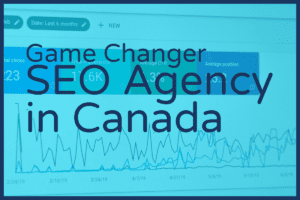Email Subject – Key to Email Marketing Success
 Email subject is an often overlooked part of the many email marketing campaigns. Would Jonathan Swift’s “Gulliver’s Travels” had as much of a lasting impact on literature if Swift had stuck with his original title, “Travels into Several Remote Nations of the World, in Four Parts. By Lemuel Gulliver, First a Surgeon, and then a Captain of Several Ships”? Or if John Steinbeck had gone with his original title, “Something That Happened,” instead of “Of Mice and Men”? Would “Jaws” have struck as much fear in the heart of swimmers if it was titled, “The Summer of the Shark”?
Email subject is an often overlooked part of the many email marketing campaigns. Would Jonathan Swift’s “Gulliver’s Travels” had as much of a lasting impact on literature if Swift had stuck with his original title, “Travels into Several Remote Nations of the World, in Four Parts. By Lemuel Gulliver, First a Surgeon, and then a Captain of Several Ships”? Or if John Steinbeck had gone with his original title, “Something That Happened,” instead of “Of Mice and Men”? Would “Jaws” have struck as much fear in the heart of swimmers if it was titled, “The Summer of the Shark”?
We will never know, of course, how these books would have fared with different titles, though “Gulliver’s Travels” is certainly easier to remember. But what we can learn from these famously bad alternate titles is the power words have to entice and capture readers.
Capturing the Reader
Your email marketing success also hinges on titles — the email subject line of your emails. The ultimate goal with email marketing is to have email recipients open the email, read the content and take action. To get to the first step, though, you have to give your audience an email they actually want to open in the first place and they won’t do that with boring, cliché or confusing email subject lines.
Writing email subject lines takes a certain skill set, just like writing titles to books or headlines for newspapers. In the marketing world, a micro business has sprung up around writing email subject lines including many blog posts, white papers, ebooks and more.
The Right Words
HubSpot’s “The Science of Email Marketing Webinar,” highlights several takeaways for email subject lines including what words lead to the most clicks and what words turn readers off. For example, the word secrets received the most clicks while the word free received the fewest. This tells us your readers want to know what they will get from your emails.
The webinar also revealed that readers do not like sales talk or jargon words in email subject lines and they don’t click on emails with words like evaluation, administration, confirm or upgrade.
It’s also important to avoid spam filter trigger words and phrases so your emails actually end up in inboxes and not the trash. If you follow HubSpot’s recommendations to avoid sales jargon, you’re halfway there. But also avoid words like congratulations, now, confirm and excessive use of exclamation points. (Check out this list of common spam triggers.)
Be Original
Finally, write email subject lines that pique your reader’s interest. You can read the research and use the “best” words but if the subject line reads boring, no one will read the email.
Take such as the recent web sensation blog post from the Seattle Police Department in Washington State, where voters just approved the legal use of recreational marijuana. The title, “Marijwhatnow? A Guide to Legal Marijuana Use in Seattle” has already garnered more than 120,000 views and has been shared more than 15,000 times on Facebook, all because of a catchy, whimsical and unique title.
So before you hit send on that important lead nurturing email, check the email subject line again and consider how we would view the oceans of the world differently if instead of “Jaws,” we had “The Terror of the Monster.” Write original, well-thought out and purposeful subjects for your emails to make your email campaigns more successful.
[ “5968, 5774”]



